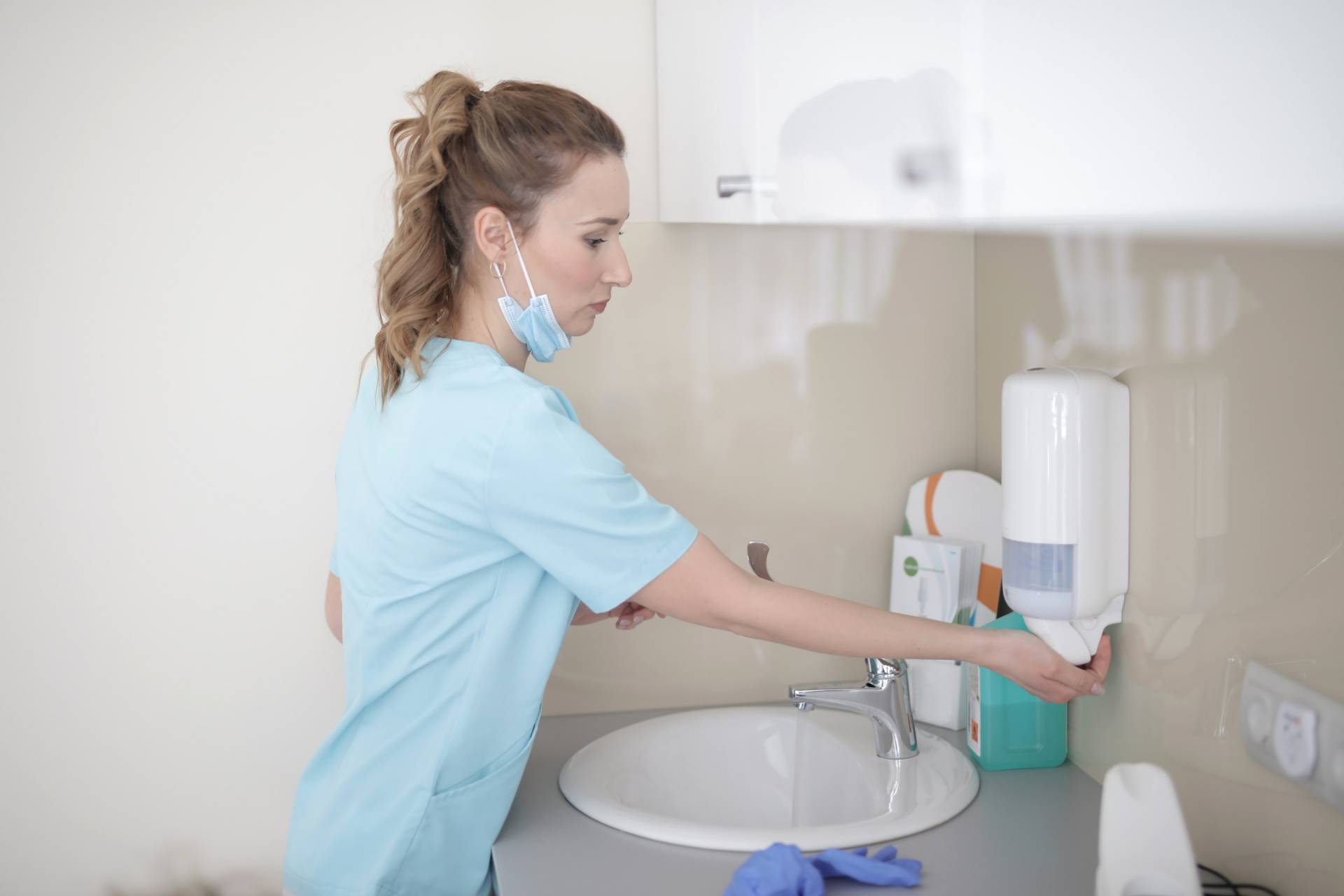The state of the country’s healthcare system is constantly changing. With the population continuing to grow, it’s presenting new challenges for healthcare professionals. Not only is the volume of patients needing care increasing, but the ailments and healthcare conditions are becoming more diverse.
To adequately meet the demands of this growing industry, registered nurses require additional training to ensure the highest quality of care. Upskilling in the Healthcare Industry enables nurses to provide more specialized care and opens them up to a broader range of career opportunities and advancement potentials. With healthcare technology changing every day, keeping up to date is essential for success.
Further education
As a registered nurse with a BSN or MSN, what is the next step? There is a massive demand in the healthcare industry for upskilled nurses who are knowledgeable in modern practices and are more flexible because of their education. A Doctor of Nursing Practise is the optimal pathway for registered nurses looking to take their career to the next level and attain the highest level of nursing practice. You can even obtain an online DNP qualification without the need to stop working. Fit the course around your busy working schedule, enhance your education, and improve the health of your patients. Also, flexible online medical courses are an excellent way to get various additional certificates that will further enrich your nursing career.
The future of healthcare is dependent on its employees
The continued growth and success of the healthcare industry is reliant on the growth of its employees. Advanced education for healthcare professionals must become a priority to drive development. There are tremendous opportunities and career potentials for nurses who have pursued further education on top of their BSN. With new healthcare technologies and medical advancements taking place daily, educated professionals must implement them into practice. If the staff doesn’t have the training, they will continue their work with outdated methods, and the industry won’t move forward.
In an ideal world, the whole nursing workforce would have the highest level of skill, ensuring consistency throughout all healthcare facilities. The industry is working towards that goal and encouraging current registered nurses to enroll in online programs, such as the above. Some employers will even cover the cost of this upskill. For new hires, you will take precedence if you already have a DNP or are enrolled in an online program that you can do simultaneously to your work. In the future, it may become a requirement.
The demand
Over 50% of the registered nurses in the United States are over 50 years old. That means that within the next 10-15 years, about 1 million nurses will be retiring. On top of that, the older nurses are less likely to proactively pursue further education, since many have been in the field for decades and aren’t concerned with upskilling. That means that the demand for nurses who have advanced qualifications is higher than ever.
The registered nurse workforce is projected to increase by 12% by 2028, with over 200,000 new nurses needed each year to fill open positions. These positions require specially trained nurses with advanced education to ensure optimal performance and patient care. For example, the health administration sector is also growing at a rapid speed and some nurses might pursue a certificate in health administration to expand their education.
Providing optimal care
When it comes to healthcare and treating patients, only the highest level of care is acceptable. A qualified and skilled healthcare professional can mean the difference between life and death when it comes to a patient. If you, as a patient, have the choice between an upskilled nurse, or one using outdated practices, there’s no question you’d choose someone who had higher qualifications.
There are more efficient methods of providing care than there were years ago, not to mention more effective. One should never write off the importance of upskilling in today’s industry. By upskilling and taking further education, healthcare professionals can adapt to new practices that help them provide the most optimal care to patients. Patients can be treated more effectively and with improved patient outcomes.
Hospitals that employ registered nurses who have upskilled and taken further education have experienced reductions in their mortality rates. In fact, studies have shown that even 10% more advanced-level registered nurses can reduce hospital mortality rates by 5%. As a nurse, providing the best level of care to patients is the objective of the job, and by pursuing a DNP, you can enable yourself to do that.
Professional development
The need for qualified and educated nurses is obvious, but beyond that, the healthcare industry needs leaders. While registered nurses have training in handling patients, further education builds additional skills in healthcare management, research, and advanced skills, which are essential in today’s complex system.
Hospitals and healthcare facilities require staff who not only perform their duties effectively but who can also identify where things can be done better. Each facility needs leaders who can make things run more efficiently and be proactive in encouraging others to do the same. By upskilling, registered nurses will attain the skills required to make improvements in patient care and continue to develop professionally.
There is a call for nurses who perform an increased number of duties off the floor, such as advanced executive and research positions. Say you have a patient that is dealing with living alone. Not only could you help them with booking an appointment with a helper who can check in with them often, but also look into buying them a medical alert system. Taking precautionary and preventive steps is part of all medical care at any stage from in-home care to data mining for drug development. Qualified professionals are needed to develop transformative care models and work on a strategy based on data collection. The professional development achieved from furthering your education will allow you to pursue a variety of different pathways in your nursing career. It will open you up to opportunities to work in various sectors of healthcare and continue to grow and develop. If, after years of working on the floor, you want to try something new and move into management or an executive position, you can do so without needing to change careers entirely.
Patient diversity
Further education will prepare registered nurses for the modern-day challenges they will face in a system that is more diverse than ever. There is no one-size-fits-all approach when it comes to handling patients who come from different cultural, economic, religious, and social backgrounds. Understanding how to treat patients effectively requires more than anatomical knowledge and now requires a tailored approach to each individual.
Upskilling from your registered nurse training and BSN will also give you specialized training when it comes to dealing with diverse patient demographics such as gender and age. You can choose to focus on a specific demographic and become an expert, for example, in midwifery or neonatal.













